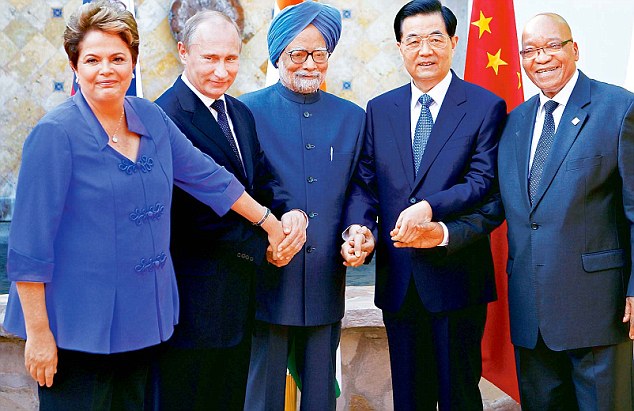Home » Economy, Middle East » Saudi Arabia expresses interested in joining Russia’s BRICS
Cyril Ramaphosa, the president of South Africa, brought news of Saudi Crown Prince Mohammed bin Salman’s declaration of his nation’s decision to join the BRICS when he returned from Riyadh earlier this week.
This is not entirely unexpected because Iran and Argentina made similar announcements in the spring. The increasing association will need us to come up with ever-complicateder acronyms at this point, but that’s not the objective.
The euphoria around BRICS is a reflection of the global changes that are occurring.
By the way, this collection of nations was initially known as BRIC. Jim O’Neill, a Goldman Sachs analyst, created this fictional construct around the turn of the century for useful purposes. Investors employed a successful marketing strategy in order to “sell” new markets (linking it to building blocks was a nice form of wordplay). The union was for a long time largely seen via an economic lens according to O’Neill.
Although the governments involved are quite diverse and geographically remote from one another, they do not require a shared framework to improve economic cooperation and everything may be done on a bilateral basis, contrary to popular belief. The development pace that first brought these nations together also fluctuated; as was to be expected, upswings were followed by downswings of various kinds.
If the idea hadn’t been reimagined, it would have remained a funny afterthought. The structure for frequent meetings at the highest political level, followed by the ministerial level, has been BRIC/BRICS since 2006. A criteria developed on its own when the political community (strictly informal, it should be underlined) began to take shape. that the BRICS is a collection of autonomous nations, each of which is free to pursue its own independent policies.
This entails the ability to achieve this aim economically as well as politically (without the need for outside opinion). One that a great many of the nations of the globe cannot achieve.
Only the United States appears to have this privilege in the West today; the other countries in the bloc, even the most economically advanced ones, willingly restrict their political autonomy by joining alliances.
However, the creation of a technical “union of sovereigns” did not result in the creation of a new framework; attempts to promote economic relations among the BRICS were not well received. Additionally, attempts to establish the organization as a counterbalance to the G7 failed since all members valued their ties to the West.
But now, things are different. Moscow-initiated events in 2022 have blatantly split the globe in two, with the west uniting against Russia and the rest waiting and watching. The West punished Moscow and shown how disobedience is punished by using every tool of pressure at its disposal.
The outcome surprised everyone. Despite the potential of penalties from the US and its allies, all the other nations, particularly the large BRICS states or those asserting a position in their own right, not only distanced themselves from the Western effort but flatly rejected it.
Of course, the point here is not to endorse Russia’s behavior but to oppose all types of outside pressure. The characteristics of the world order are tied to this systemic nature, hence altering the latter is necessary to find solutions.
At this point, it became obvious that BRICS had a lot of promise. It may be a somewhat ambiguous category, but it is more prepared than anything else for individuals who are interested in other international order-building methods. These possibilities require the previously indicated full sovereignty (political and economic).
As a result, joining the BRICS signifies acceptance into a global community that is forming outside of established Western control. It does not always have to include conflict.
Being able to avoid Western institutions and lower the chance of contact with them is considerably more useful. For instance, by developing other methods of managing financial, commercial, and trade connections without relying on equipment under the authority of the US or the EU.
The desire for Riyadh to join is absolutely amazing. Of course, a nation with considerable control over material resources and the power to control global pricing may afford autonomous conduct and select partners who are at ease with one another and do not place a number of restrictions on contact.
A hegemon-led, centralized international order must ultimately come to an end. Whatever the outcome of the situation in Ukraine, this will take place. Thus, a variety of formats will be highly sought after. The altered conditions will present opportunities for BRICS.
Twenty years ago, the British acronym’s creator could scarcely have predicted this outcome, but life can be kind to projects that initially appeared frivolous.
Please wait…
RELATED ARTICLES
Did you like this information? Then please consider making a donation or subscribing to our Newsletter.
 RSS Feed
RSS Feed















 October 23rd, 2022
October 23rd, 2022  Awake Goy
Awake Goy 

 Posted in
Posted in  Tags:
Tags: 













